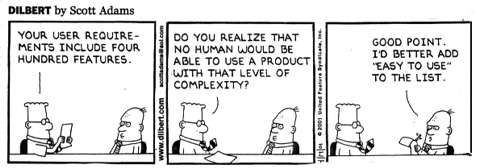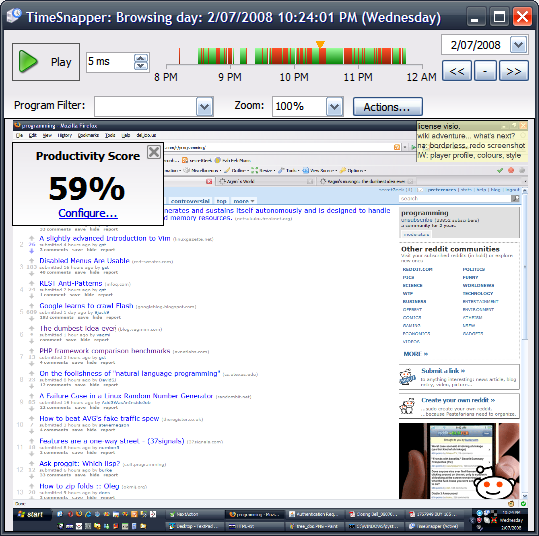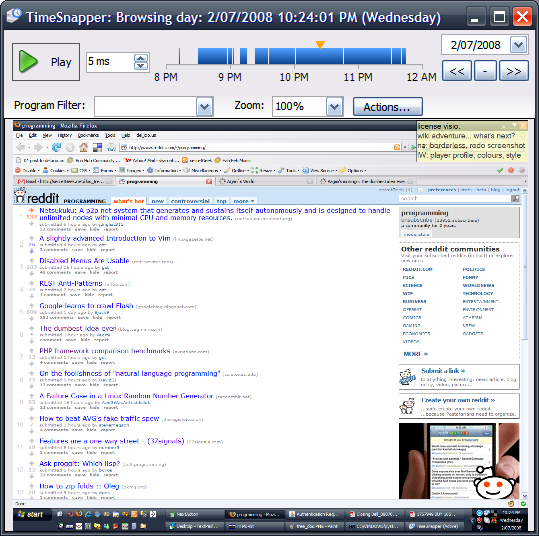Fixing problems can give you a glimpse of something terrible
I was over at a friend's place today, and there was much swearing about F***ing Vista, and "F***ing Microsoft" because he couldn't get Live Messenger to install succesfully on Vista (Home Premium).
Live Messenger is one of the main things he uses on the computer -- so its broken state meant that a large portion of his investment in a new computer was total waste. Very frustrating stuff.
My friend was pretty certain that I wouldn't be able to fix the problem, because:
- he'd spent a long time on it himself (he has a macgyver-like ability to solve problems)
- another friend, who is a talented and successful sysadmin had spent many hours trying to fix the problem.
In fact, he was so certain I would fail that he made this generous offer:
If I succeeded at getting Messenger to work on his computer, he would give me the opportunity to take a photo of his fresh new vasectomy wound, and share that photo with the readers of this blog. Seriously.
Too good to pass up, I cracked my knuckles and sat down at the computer.
Well, i tried to diagnose the problem, and i was stonewalled immediately.
The Live Installer (WLInstaller.exe) was failing, and giving no reason, no detail, no error code -- nothing you could use for "direct" troubleshooting.
Worse still, there was absolutely no evidence in the event log.
That was a pretty big fail, on the part of WLInstaller.exe. As usual, I'd like to take a baseball bat to the live team. But Vista didn't seem to be to blame at all.
It is far too easy to blame the Operating System whenever there's a problem on the machine. Does Vista deserve to be cut some slack? Maybe just innocent until proven guilty would be a fair place to start from.
I had momentary visions of using (sysinternals) Process Monitor and Fiddler to see what was really going on. But then I took my usual troubleshooting tactic: JFGI.
Turns a lot of people have trouble installing Messenger if they're behind a proxy.
The file 'WLInstaller.exe' is just a shim that is supposed to grab the real installer files from the internet. But if your machine is behind a certain type of proxy (I don't know what type in particular) then it won't be able to download the real installer files (the .msi).
This forum post, "Install WLinstaller.exe via proxy in Windows Live Messenger", gave a link to download the .msi file directly, and bypass using the broken WLInstaller.
It worked a treat.
You will be pleased to know that I declined the ensuing photo opportunity. I can only imagine that you missed out on seeing something like this.




